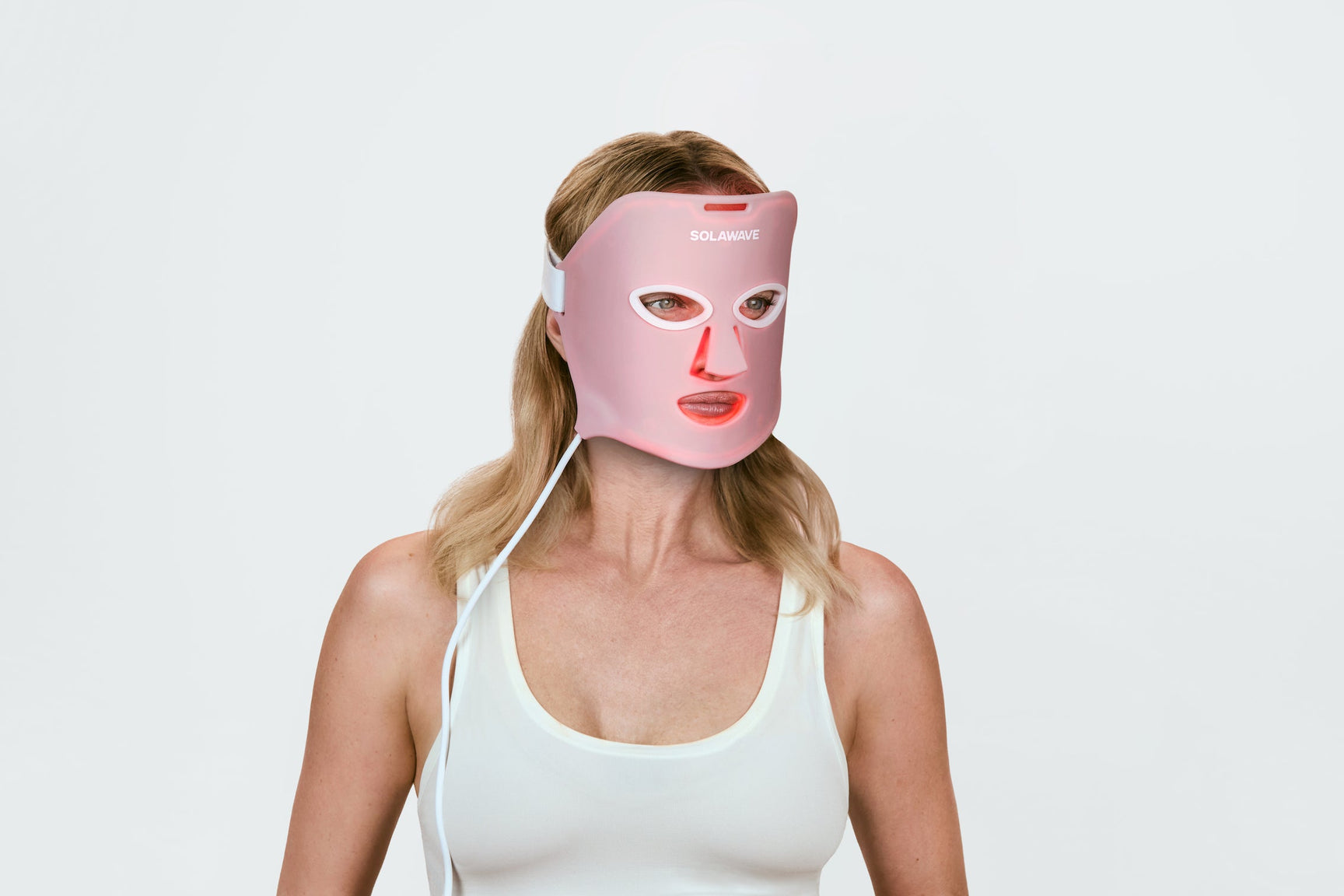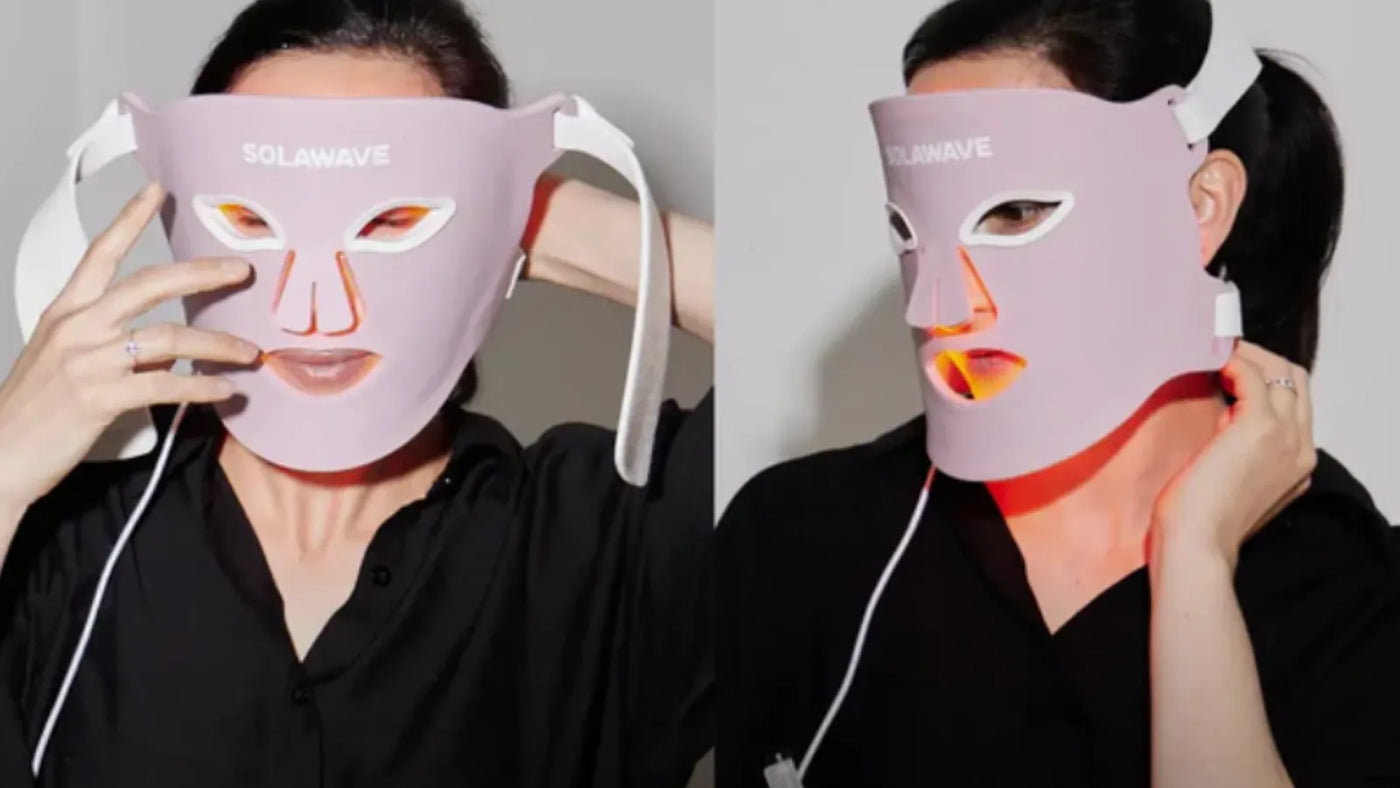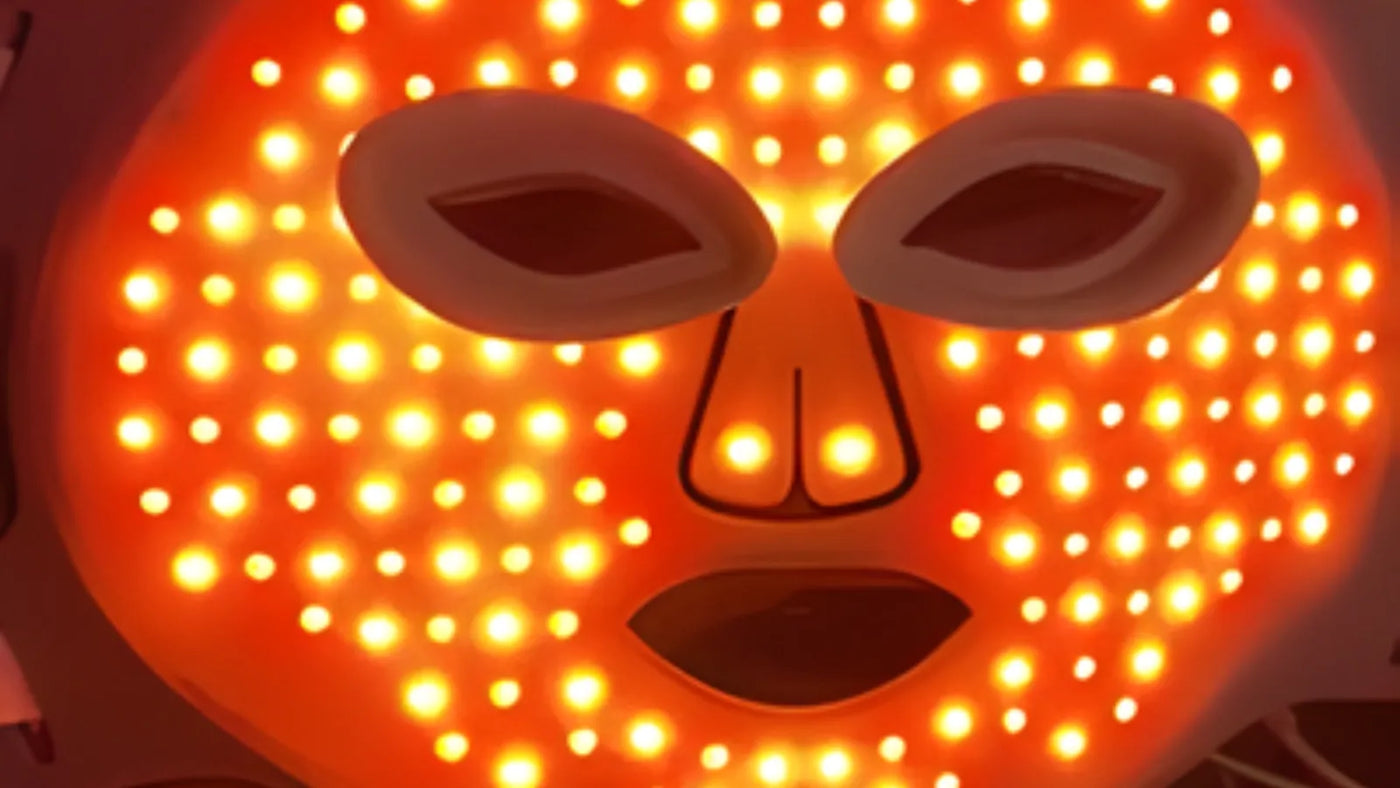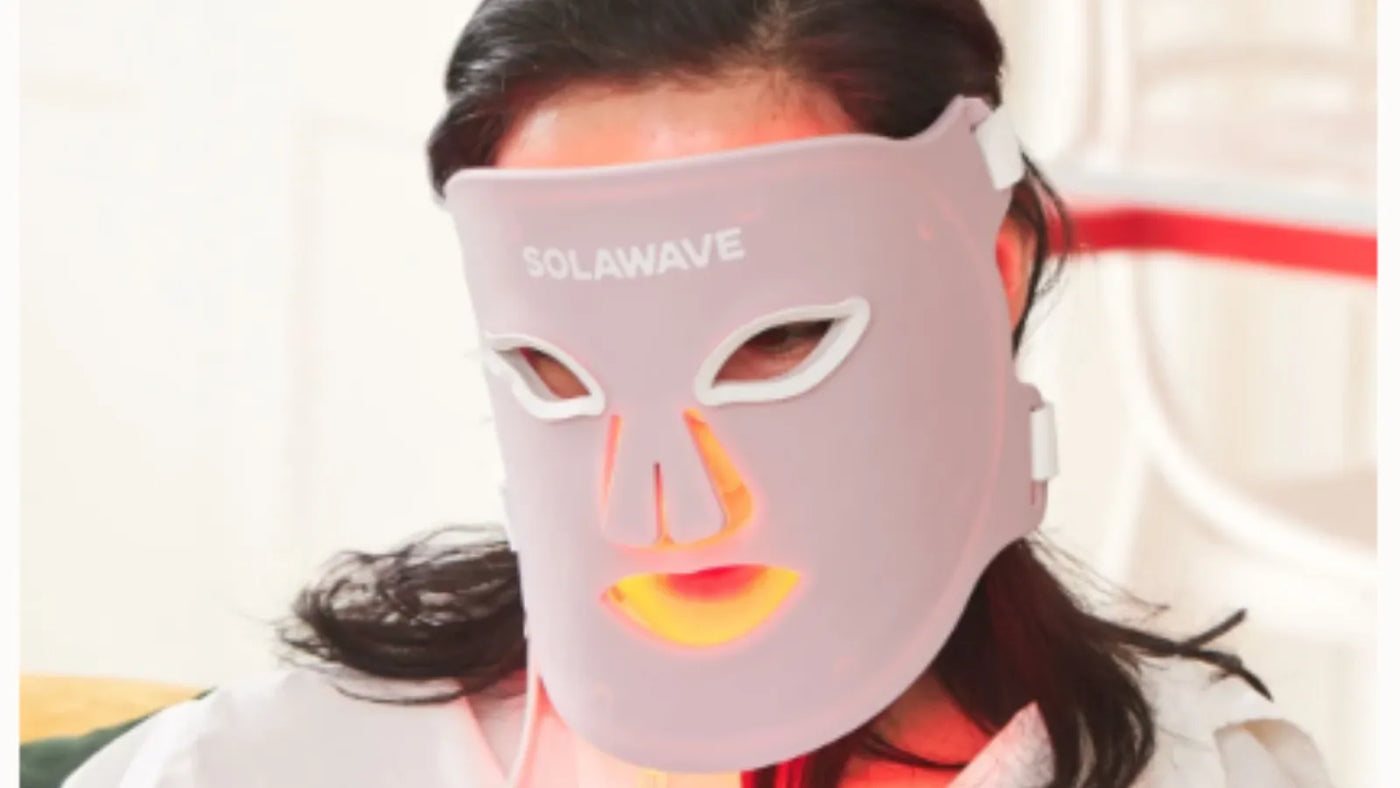

Red Light Therapy for Skin Conditions: Can It Help?
Skin conditions are incredibly common and can affect anyone, regardless of age or background. From persistent acne and eczema to more complex issues like psoriasis or rosacea, these conditions can impact your comfort, confidence, and overall quality of life. Navigating the world of skin health can feel overwhelming, especially with so many treatment options and emerging wellness trends.
This article is here to give you clear, reliable information about some of the most common skin conditions, the proven ways to address them, and where Red Light Therapy fits into the conversation. You'll learn about established medical treatments, lifestyle changes that can make a difference, and what current research says about Light Therapy and Red Light Therapy. Most importantly, it’s essential to understand that Red Light Therapy is not a cure or treatment for any medical or skin condition. Instead, think of it as one of many wellness tools that people are exploring, always alongside guidance from healthcare professionals.
Common Skin Conditions
Skin conditions are a broad category of health issues that affect the skin’s appearance, texture, or function. These conditions can range from mild and temporary to chronic and more severe, often impacting your daily comfort and self-esteem.
Some of the most prevalent skin conditions include:
-
Acne: Characterized by pimples, blackheads, and cysts, acne often appears on the face, back, and chest. It’s most common in teenagers but can affect adults as well. Hormonal changes, genetics, and certain lifestyle factors can contribute to acne.
-
Eczema (Atopic Dermatitis): Eczema causes dry, itchy, and inflamed patches of skin. It often appears in childhood but can persist into adulthood. Triggers include allergens, stress, and environmental factors.
-
Psoriasis: This chronic condition leads to thick, scaly patches of skin that may be itchy or painful. Psoriasis is believed to be related to immune system dysfunction and often runs in families.
-
Rosacea: Rosacea typically causes redness, visible blood vessels, and sometimes bumps on the face. It can be triggered by heat, spicy foods, alcohol, or stress.
Symptoms of skin conditions can vary widely but often include redness, itching, swelling, dryness, flaking, or the appearance of bumps and lesions. These symptoms can affect your confidence, disrupt your daily routine, and even cause discomfort or pain.
It’s important to remember that many skin conditions share similar symptoms, making self-diagnosis challenging. Consulting a healthcare professional is essential for an accurate diagnosis and to develop a treatment plan tailored to your needs. Early intervention can help manage symptoms, prevent complications, and improve your quality of life.
Proven Treatments for Skin Conditions
Managing skin conditions effectively often requires a combination of medical treatments and lifestyle adjustments. Evidence-based therapies are designed to address the underlying causes, reduce symptoms, and prevent flare-ups.
Here are some of the most common and effective approaches:
Topical Medications
Topical treatments are applied directly to the skin and are often the first line of defense for many conditions:
-
Corticosteroids: These anti-inflammatory creams or ointments help reduce redness, swelling, and itching, especially in eczema and psoriasis.
-
Retinoids: Derived from vitamin A, retinoids are commonly used for acne and certain types of psoriasis. They help unclog pores and promote healthy skin turnover.
-
Antibiotics: Topical antibiotics can treat bacterial infections associated with acne or other skin issues.
Oral Medications
For more severe or widespread skin conditions, oral medications may be prescribed:
-
Antihistamines: These can help control itching and allergic reactions, particularly in eczema or hives.
-
Immunosuppressants: Used for chronic or severe cases, these medications help regulate the immune system’s response, especially in conditions like psoriasis or severe eczema.
-
Oral antibiotics or retinoids: Sometimes necessary for persistent or severe acne.
Lifestyle Changes
Daily habits and routines can have a significant impact on your skin health:
-
Skincare routines: Gentle cleansing, moisturizing, and sun protection are essential for managing most skin conditions.
-
Diet: Some people find that certain foods can trigger flare-ups. Keeping a food diary and working with a healthcare provider can help identify potential triggers.
-
Stress management: Stress can worsen many skin conditions. Techniques like mindfulness, exercise, and adequate sleep can support overall skin health.
Professional Therapies
In some cases, advanced therapies may be recommended by your dermatologist:
-
Phototherapy: Controlled exposure to specific wavelengths of light can help manage conditions like psoriasis and eczema. This is different from at-home Light Therapy devices and is performed under medical supervision.
-
Chemical peels: These treatments remove the outer layer of skin to improve texture and reduce symptoms of acne or sun damage.
-
Laser treatments: Targeted laser therapy can help reduce redness, scarring, or visible blood vessels, especially in conditions like rosacea.
No matter which treatment approach you pursue, it’s crucial to follow your healthcare provider’s recommendations. Self-treating or skipping prescribed therapies can lead to worsening symptoms or complications. Regular check-ins with your dermatologist ensure that your treatment plan is effective and can be adjusted as your needs change. Your skin health journey is unique, and working closely with a professional gives you the best chance for lasting results.
Exploring Light Therapy Options
Light Therapy, also known as photobiomodulation, uses specific wavelengths of light to interact with your body at a cellular level. This technology has gained attention for its potential to support skin health, but it’s important to understand what it is, how it works, and its limitations.
Types of Light Therapy
There are several types of Light Therapy, each using different wavelengths and colors of light to reach varying depths of your skin:
-
Red Light Therapy: Utilizes red wavelengths to penetrate deeper layers of the skin. Originally explored by NASA for wound healing, Red Light Therapy is now used in skincare devices to support the skin’s natural renewal processes.
-
Near-Infrared Light Therapy: Uses near-infrared wavelengths, which reach even deeper than red light. This type of therapy is often combined with Red Light Therapy to further support collagen and elastin production beneath the surface.
-
Blue Light Therapy: Targets the outermost layers of the skin. Blue Light Therapy is commonly used in dermatology for its effects on bacteria and is often included in acne treatment protocols.
-
Amber Light Therapy: Uses amber wavelengths to target the skin’s surface, supporting overall tone and reducing redness.
How Light Therapy Devices Work
Light Therapy devices, such as those developed by Solawave, use medical-grade LEDs to deliver specific wavelengths of light safely and effectively. When these wavelengths reach your skin, your cells convert the light into usable energy. This energy supports your skin’s natural functions, such as renewing, repairing, and restoring itself. For example, Red Light and Near-Infrared Light Therapy can help support collagen and elastin production, which are essential for maintaining firm, smooth skin.
It’s important to note that regular household bulbs do not provide the precise wavelengths needed for these effects. Only specialized Light Therapy devices are designed to deliver the right type and amount of light for your skin.
Light Therapy in Dermatological Settings
Light Therapy is trusted by dermatologists, estheticians, and athletes for its ability to support the skin’s natural processes. In clinical settings, Light Therapy may be used as a complementary approach to help improve the appearance of fine lines, wrinkles, and overall skin texture.
However, it is not a cure or primary treatment for any skin condition. While some users report visible improvements with consistent use, Light Therapy should always be considered as a supportive wellness tool, not a replacement for proven medical treatments or professional advice.
If you’re considering Light Therapy, consult with a healthcare professional to ensure it’s appropriate for your skin type and needs. Always remember that while Light Therapy can play a role in your skincare routine, it is not a solution for any medical or skin condition.
Safety and Considerations
When considering Light Therapy devices, it’s essential to prioritize safety and understand who should and should not use these products. While devices like the Solawave Wrinkle Retreat Light Therapy Face Mask are FDA-cleared for specific cosmetic uses, they are not suitable for everyone and must be used with care.
General Safety Guidelines:
-
Only use Light Therapy devices as directed and over normal, healthy, intact skin.
-
Always read the instruction manual thoroughly and review any available instructional videos before your first use.
-
Perform a patch test on a small area of your skin to check for sensitivity before using the device on your face.
-
Keep devices out of reach of children and use them only as intended for adults.
Who Should Not Use Light Therapy Devices:
-
Individuals under the age of 22.
-
Those who are pregnant, planning to become pregnant, or breastfeeding.
-
Anyone with active cancer or cancerous lesions.
-
Individuals with severe skin conditions, such as severe acne.
-
Those with disorders involving photosensitivity or who are taking photosensitizing medications.
-
Anyone who suffers from light-induced headaches.
-
Individuals with known allergies to silicone or plastics.
-
Those who have had a sunburn within the past two weeks.
-
People with recent facial surgery, epilepsy, seizures, or other significant medical concerns should consult a healthcare professional before use.
Do not use Light Therapy devices over swollen, infected, or inflamed areas, skin eruptions, cancerous lesions, or areas lacking normal sensation. Avoid use if you have a fever, acute inflammation, severe circulatory disorders, or light sensitivity without first consulting a healthcare professional.
Possible Side Effects and Risks: While adverse reactions are rare, they can include skin irritation, bruising, contact burns, dizziness, nausea, headaches, or skin discoloration. If you experience any discomfort, persistent headache, or other concerning symptoms, stop using the device immediately and consult your healthcare provider.
Consult a Professional: Before starting any new therapy, especially if you have underlying health conditions or are taking medications, it’s crucial to speak with your healthcare professional. They can help determine if Light Therapy is appropriate for your individual needs and guide you on safe usage.
Remember, Light Therapy devices are intended for cosmetic use and are not a cure or treatment for any medical or skin condition. Always follow manufacturer guidelines and prioritize your safety above all.
Conclusion
Understanding skin conditions and their impact on your daily life is the first step toward effective management. Proven treatments—ranging from topical and oral medications to lifestyle changes and professional therapies—offer real solutions for many common skin concerns.
While research into Red Light Therapy and other forms of Light Therapy continues to grow, it’s important to remember that these devices are not cures or treatments for any medical or skin condition. If you’re dealing with a skin issue or considering new therapies, always consult a healthcare professional to ensure you’re making informed, safe choices for your skin health.
Sources:





















